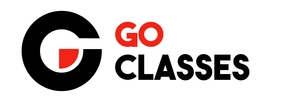There are no items in your cart
Add More
Add More
| Item Details | Price | ||
|---|---|---|---|
For a Computer Science engineer in India, GATE and ISRO represent two of the most prestigious career pathways. One opens the doors to premier academic institutions and PSUs, while the other offers a chance to be part of India's glorious space mission. This is the only guide you will need. We will first take a deep dive into each exam individually, and then put them head-to-head in a grand comparison to help you choose your destiny.
Are you dreaming of contributing to India’s space exploration mission? The Indian Space Research Organisation (ISRO) periodically releases notifications via the ICRB for scientist/engineer positions. If becoming a scientist at ISRO is your goal, here is a detailed, step-by-step guide.
To be eligible, candidates must meet specific academic and age requirements (always verify with the latest official notification):
Important Note: This recruitment is not through GATE; ISRO conducts its own distinct examination.
The selection process begins with a written examination (offline mode), followed by an interview. A recent exam pattern was as follows:
The examination syllabus requires thorough preparation. For the latest syllabus, always check the official ISRO website.
With a high number of questions in limited time, ISRO is a race. The GO Classes ISRO CS Test Series is designed to give you real exam practice, helping you build the speed and accuracy needed to win.
Master the ISRO SprintThe GATE is a foundational step for engineering students to elevate their careers. It is conducted annually by a consortium of the seven oldest IITs and IISc Bangalore.
The paper is for 100 marks and must be completed in 3 hours.
For the full official syllabus, download the PDF: Official GATE 2025 CS Syllabus.
Now that you have a deep understanding of each exam, here is the ultimate head-to-head comparison:
| Parameter | GATE | ISRO |
|---|---|---|
| Primary Goal | M.Tech/PSU Jobs | Scientist 'SC' Job |
| Difficulty Level | High (Analytical) | Moderate (Speed-based) |
| Exam Pattern | 65 Qs in 180 Mins | ~95 Qs in 120 Mins |
| Syllabus Focus | Core CS + Maths + Aptitude | Core CS + Reasoning + Add-ons |
| Role of Interview | Important for PSUs | Very Important (50% weightage) |
| Work-Life Balance | Excellent (in PSUs) | Demanding (especially during missions) |
You don't need two separate plans. The GO Classes Complete GATE Course is engineered to build your conceptual foundation so strongly that you are not just ready for GATE's depth, but also for ISRO's speed.
Start Your Foundation with Our GATE Course
Priyam
Team GO Classes